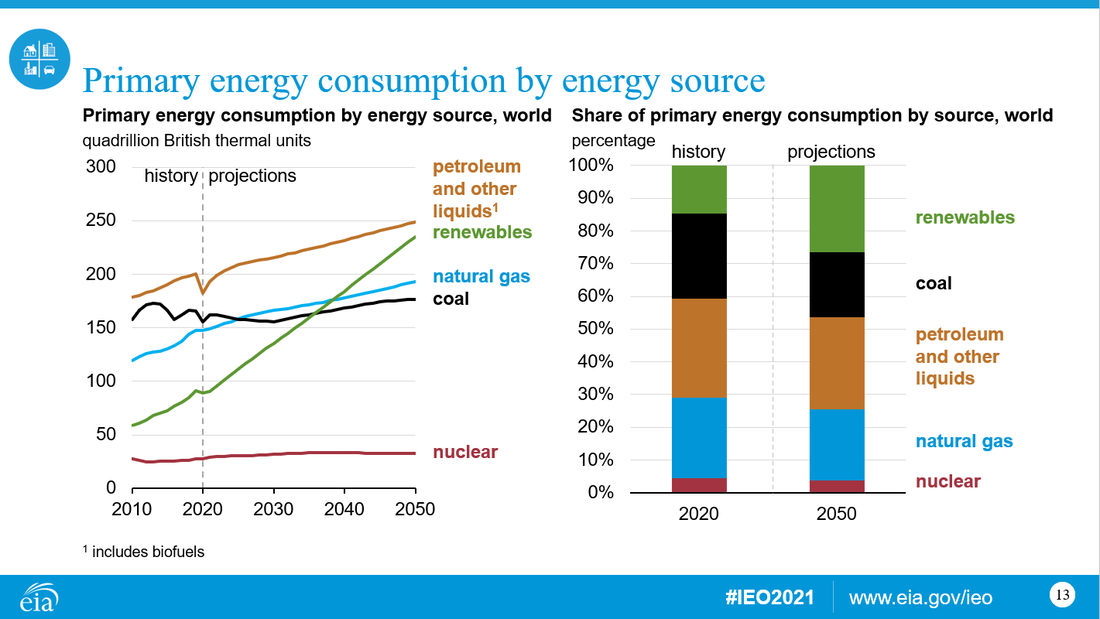|
This blog has tracked IEA primary energy projections for over ten years. Comparing the 2021 projections for 2050 to the 2012 projections for 2050 shows an overall 2050 primary energy total as about the same as 2012 and 2020, projections, but the weights have shifted in favor of renewables. The graph shows renewables at about 25% of total primary energy in 2050 with about an overall increase in capacity of about 4X over 2020. Converting QBtu to TW years, that's about 8TW average generation or about 30 TW nameplate capacity for wind, solar, hydro and biomass. As a point of reference the current US electricity generation name plate capacity is about 1.2 TW The big takeaway is that roughly 75% of primary energy is still from fossil fuels which because of economic growth are still pumping out more CO2 every year out to 2050. Somehow climate optimists have persuaded themselves that CO2 emissions can be eliminated by 2050. The scale of renewables growth projected is large but realistic. This analysis does not factor in the additional generation from storage or the additional costs for grid enhancement. The report highlights that the doubling of energy consumption between now and 2050 is all from economic growth of the developing world so most of this new renewable energy is going to be deployed by them. There is a fantasy of renewables being cheaper than fossil fuels which is demonstrably false when all costs are counted. The developing world has consistently favored economic growth over climate change and large parts of the developed world are skeptical. None of this bodes well for increased deployment of renewables. If the fantasy that renewables are cheaper than fossil fuels was true there might be a chance that renewables could be deployed at a higher rate than these projections. Stratosolar holds out the possibility of renewables cheaper than fossil fuels that could be rapidly deployed by 2050. There is no other likely alternative. The reality of climate change is becoming increasingly obvious every year. We may have already crossed several tipping points where we cannot go back and more severe tipping points are on the horizon. By Edmund Kelly
Comments
|
Archives
December 2023
Categories
All
|
|
© 2024 StratoSolar Inc. All rights reserved.
|
Contact Us
|


 RSS Feed
RSS Feed